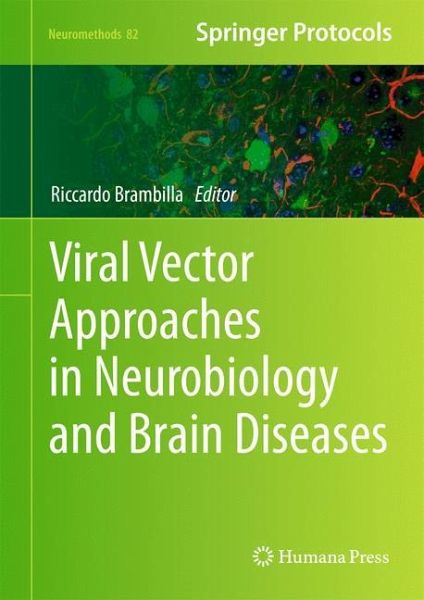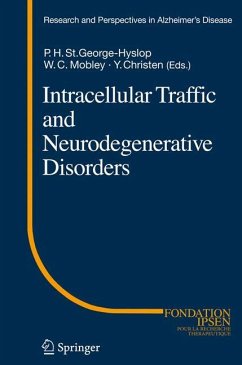
Viral Vector Approaches in Neurobiology and Brain Diseases
Versandkostenfrei!
Versandfertig in 6-10 Tagen
76,99 €
inkl. MwSt.

PAYBACK Punkte
38 °P sammeln!
Aiming toward improvement in the safety, efficiency, and specificity of viral vectors for neurobiological research and clinical applications, Viral Vector Approaches in Neurobiology and Brain Diseases covers key aspects related to the use of viral vectors in neuroscience, with a major emphasis on basic mechanisms of synaptic plasticity, learning, and memory, as well as molecular neuropharmacology and experimental animal models of brain disorders. The volume begins by delving into features of the viral vectors currently available in neuroscience and their production methods, and it then continu...
Aiming toward improvement in the safety, efficiency, and specificity of viral vectors for neurobiological research and clinical applications, Viral Vector Approaches in Neurobiology and Brain Diseases covers key aspects related to the use of viral vectors in neuroscience, with a major emphasis on basic mechanisms of synaptic plasticity, learning, and memory, as well as molecular neuropharmacology and experimental animal models of brain disorders. The volume begins by delving into features of the viral vectors currently available in neuroscience and their production methods, and it then continues onward to examples of successful applications of viral vector technology to psychiatric and memory research, current applications of viral vector technology in the context of neurological disorders, as well as various cutting-edge applications of viral vector technology to neuroscience, including optogenetics. Written for the Neuromethods series, the chapters of this book contain the kind of detailed description and implementation advice that promotes successful, repeatable results.
Practical and up to date, Viral Vector Approaches in Neurobiology and Brain Diseases will be useful not only to neurobiologists wishing to routinely use viral vectors in the laboratory but also to experienced scientists needing detailed new protocols for a variety of experimental applications.
Practical and up to date, Viral Vector Approaches in Neurobiology and Brain Diseases will be useful not only to neurobiologists wishing to routinely use viral vectors in the laboratory but also to experienced scientists needing detailed new protocols for a variety of experimental applications.













